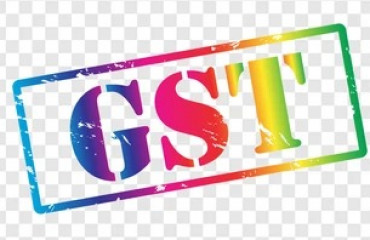
Manufacturers and importers can adjust maximum retail prices to reflect new GST rates until 31 December, easing transition and reducing packaging waste.
New Delhi: The government on Tuesday allowed manufacturers, packers, and importers of pre-packaged goods to revise maximum retail prices (MRP) on unsold stock following changes in Goods and Services Tax (GST) rates, a move aimed at easing the transition for businesses and avoiding packaging waste.
At the heart of the order, issued by the Department of Consumer Affairs under the Legal Metrology (Packaged Commodities) Rules, 2011, companies can revise the MRP on goods manufactured, packed, or imported before the GST revision—either upward or downward depending on the tax change.
Mint reported on 6 September that the Centre has vowed to guard consumer gains as GST cuts take effect on items ranging from rotis to SUVs. As per that report, the consumer affairs ministry will scan complaints on social media, review representations from consumer groups, and track grievances received on the National Consumer Helpline, the government's central redressal system, according to two people aware of the matter.
On 3 September, GST rates were largely consolidated into two slabs—5% and 18%. Goods from the old 12% and 28% slabs moved to lower rates, essential items were exempted, and a 40% rate remains for "sin" and luxury goods.
GST cuts and price relief
The government's decision to revamp GST will lead to sharp tax cuts on a range of daily-use items. Hair oil, shampoo, toothpaste, toilet soap bars, toothbrushes and shaving cream will now attract 5% GST, from 18% earlier. Similarly, GST on butter, ghee, cheese, dairy spreads, pre-packaged namkeens, bhujia, and mixtures will drop from 12% to 5%.
While this will ultimately benefit consumers through lower prices, companies and distributors and retailers face challenges in the short term, such as managing old stock and ensuring new stock reaches the market on time.
As a result of these revisions, companies can now update the MRPs of unsold stock to reflect the new tax rates. The revised MRP can be displayed via stickers, stamping, or online printing, provided the original MRP remains visible. The facility is allowed until 31 December 2025 or until stocks are cleared, whichever is earlier, according to the order.
The new MRP must reflect only the exact increase or decrease in GST; if taxes are lowered, the revised MRP cannot exceed the reduced price.
Manufacturers, packers, or importers must publish at least two advertisements in newspapers and inform dealers as well as central and state Legal Metrology authorities about the price change, the order stated.
Failure to pass on GST rate reductions to consumers will be treated as an unfair trade practice under Section 2(47) of the Consumer Protection Act, 2019. In such cases, the Central Consumer Protection Authority (CCPA) can levy penalties of up to ₹10 lakh for the first offence and up to ₹50 lakh for repeat violations under Sections 20 and 21.
Separately, tax authorities will be monitoring business pricing behaviour after 22 September to ensure consumers fully benefit from the cuts, Central Board of Indirect Taxes and Customs (CBIC) chairman Sanjay Kumar Agarwal had told Mint in a 5 September interview.
Industry, consumer response
Industry leaders welcomed the move as practical relief for businesses grappling with unsold inventories and packaging losses.
"This measure reduces compliance burden and prevents wastage of packaging material, but the short three-month window means companies must move quickly to clear stocks," said a senior executive at a leading FMCG firm, requesting anonymity.
Experts noted that while the order aligns with past practices whenever indirect tax rates change, its significance has grown amid frequent GST revisions across consumer goods categories.
"It's a timely move and this measure provides dual benefits: it ensures that consumers are transparently informed of revised prices, and it helps industries avoid large-scale wastage of packaging material," said Saurabh Agarwal, tax partner, EY.
"From an industry perspective, this extension till 31 December provides much-needed operational flexibility, particularly for FMCG, pharmaceutical, and other sectors with large packaging inventories. It allows companies to reuse existing packaging material, reducing raw material costs, while ensuring adherence to regulatory compliance," Agarwal added.
Consumer groups also welcomed the decision, saying it will help buyers receive the benefits without delay and empower them to demand compliance if companies fail to follow the rules.
"In the past, some firms used GST revisions as a cover to hike prices beyond the actual tax increase, leaving consumers shortchanged. The new order sets clear limits and creates accountability, ensuring that businesses pass on tax benefits fairly rather than using them to pad margins," said Ashim Sanyal, chief operating officer of Consumer VOICE.
